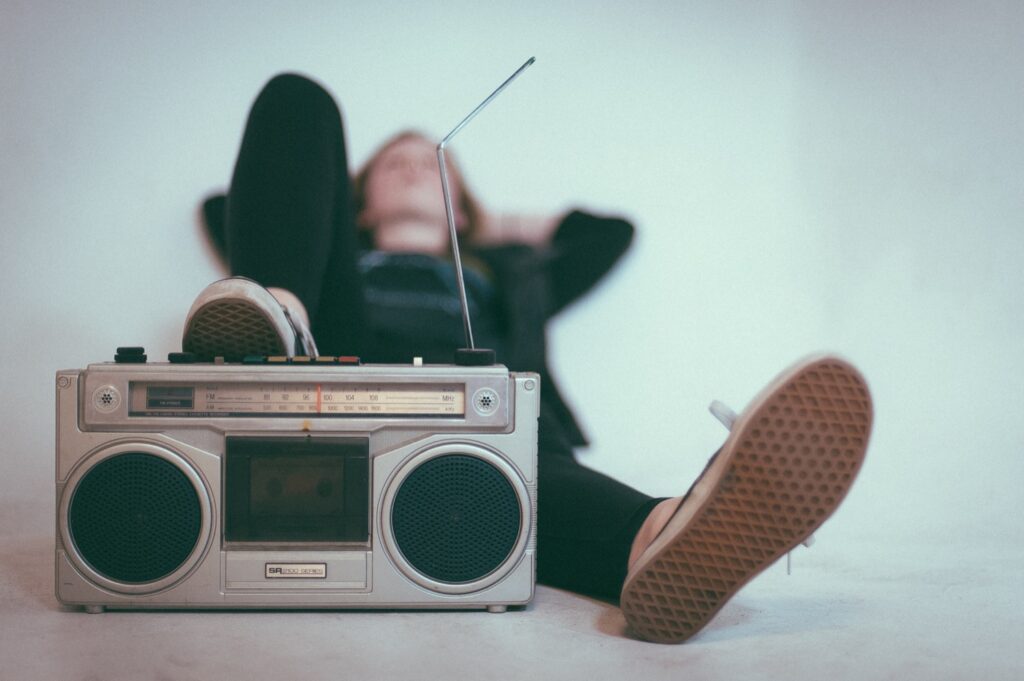Have you ever listened to a song and at some point you felt shivers run up your spine and goosebumps on your arms? There is actually a scientific term for this, it is called frisson (pronounced free-sawn or free-son) is French for fever, illness; shiver, or thrill, and referred to as aesthetic chills or psychogenic shivers.

The most common catalyst for this phenomenon is listening to emotionally charged music, but according to a 2019 study, looking at a beautiful sunset, a work of art, watching a scene in a movie, realizing a deep insight or truth, reading a particular line of poetry, or physical contact can elicit this response.
It is estimated that roughly between 50 and 80 percent of the population experience frisson from various experiences, however a study from USC suggests that only 50 percent of people experience shivers, and goosebumps when they listen to music. It does, however, occur more often than one would think because Reddit users have created a sub-forum to share frisson-producing media.
A number of researchers have postulated that goosebumps are an evolutionary vestige. Early, hairy man kept warm thanks to an endothermic layer of heat that was retained immediately beneath the hairs of their skin. A rapid change in temperature temporarily raises and then lowers those hairs, adjusting this layer.
As humans lost most of their body hair and started wearing clothes, there is less need for the endothermic layer of heat. However, the anatomical feature is still in place, and it is possible it has been rewired to produce “aesthetic” chills as a response to stimuli that produce an emotional reaction.
Appreciation of beauty is a distinctly human trait, although it is not clear what evolutionary advantage this gives, the current line of reasoning is that it is connected with our need to understand the world around us.
One author on the subject put it this way:
Aesthetic chills correspond to a satisfaction of humans’ internal drive to acquire knowledge about the external world and perceive objects and situations as meaningful. In humans, this need to explore and understand environmental conditions is a biological prerequisite for survival.
Musical passages that include sudden changes in volume, unexpected lyrics or melodies are common catalysts for frisson because they “violate” listeners’ expectations positively.
Musicologist David Huron offers an explanation for why we experience such emotional responses to music. In his 2006 book, Sweet Anticipation, he offers something called the “contrastive valence theory,” which says emotional states are strongly influenced by contrast.
“If we initially feel bad, and then we feel good, the good feeling tends to be stronger than if the good experience occurred without the preceding bad feeling.” In simple terms, this means how we respond to an event or situation depends on how we interpret the particular demands we are faced with.
Huron goes on to say: “When a person is unexpectedly surprised by her friends, the first response is one of terror: her eyelids retract and her jaw drops. But within half a second, fear is replaced by happy celebration as the individual recognizes her friends and the positive social meaning of the event.”
The human brain has evolved to predict future outcomes to ensure our survival, and is constantly anticipating how a situation will end. When our first prediction turns out to be wrong, depending on the scenario, we can feel emotions ranging from anger to surprise to frisson.
Studies involving personality tests have shown that the listeners who experience frisson also score high for a trait called “openness to experience.”
According to a study done at Eastern Washington University, “People who have this trait have exceptionally active imaginations, appreciate beauty and nature, seek out new experiences, often reflect deeply on their feelings, and love variety in life. Some aspects of this trait are inherently emotional (loving variety, appreciating beauty), while others are cognitive (imagination, intellectual curiosity).”
So now you have the scientific explanation why you get goosebumps when you hear that “special” song.







